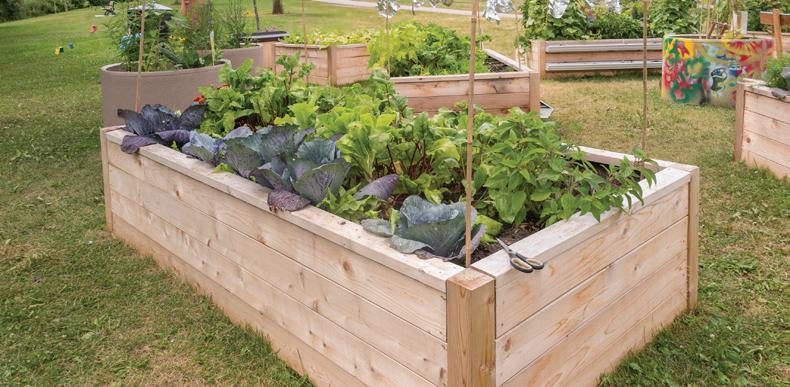
3 minute read
Eumundi Voice Issue 119
WEATHER
Notice the weather
What is the difference between weather and climate? Weather refers to the short-term conditions of the atmosphere – the specific weather conditions being experienced at one moment in time – while climate refers to the average weather patterns and conditions of a place over an extended period of time.
We are now aware Earth’s climate pattern is not fixed but has changed significantly throughout geological history and is once again changing. The debate is whether climate change is caused by human activities, cosmic forces due to our movement through the galaxy – and the responses of our sun to that – or a combination of both.

This sets a new debate in motion. Can and/or should we reduce some of the human behaviours that are being blamed for changing the climate? Or should we just accept the change and do nothing? The one thing that our geologists and archaeologists do not deny, is that our planet has never carried such a large population in large cities, predominantly along our coastlines. Nor has it ever faced such shifts, with so many of Earth’s eco-systems removed or reduced. So, what do we do?
Perhaps now is the time to learn and adapt to our depleted resources. We can achieve this by regenerating ecosystems, securing our homes against fire and flood, finding species of plants that will cope with the predicted changes and plant them locally, and ensuring our food security by having access to acclimatised staples-starches, greens, root crops, fruits, herbs, fungi and small animal systems. We can ensure the provision of clean water and make sure our waste is turned into inputs for the system so there is little, or no pollution. Severe weather events can impact transport, so forget the outof-season produce for a while and learn how to take advantage of what can be produced locally. In the process you will find that it is hard to do it alone.
In fact, Bill Mollison – a founder of permaculture – stated “that self-sufficiency was a goal, not a reality, and that by trying to be totally selfsufficient you would have to mine your land.” This means you would need to ask it to produce a harvest that the soil type and/or miro-climate could not sustain. Therefore, he told us to go back to community. Share knowledge and plant materials, form cooperatives to start productive systems, join a Local Energy Transfer System (LETS) group or a non-monetary swapping of goods and services. To be secure Mollison said, “You must be able to look out your window and see food and people who will cooperate with you. Otherwise, you are in a precarious situation.” Perhaps finding community is the first step, and together we will find out the rest. There are many local groups that meet to share a specific aspect of our town, history, community, or recreation such as sports, arts, and literature. Shared interests grow relationships, friendships,
trust and respect. These groups can be found on social media with regular new gathering opportunities being offered, while others are advertised in Eumundi Voice. Neighbourhood gatherings are another way to get to know the locals. The community gardens in Eumundi and Cooroy have access to planting materials. There is much to be done and plenty of human and biological resources available locally. We are fortunate to have people in our district who have been working on this for over 40 years and are happy to help. Janet Millington










